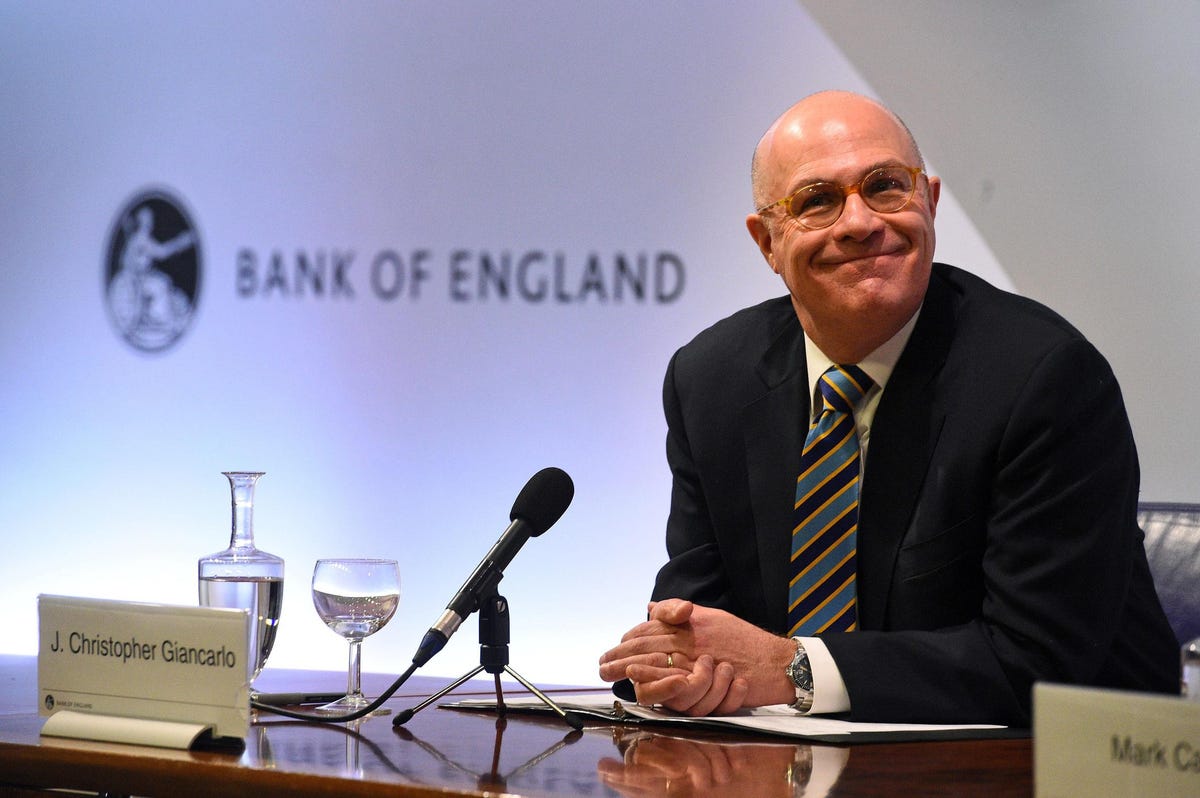There was no shortage of interesting ideas discussed at last week’s Consensus conference, CoinDesk’s flagship crypto gathering. But the most disappointing speech – though it wasn’t at all surprising – was the one delivered by former Commodity Futures Trading Commission Chairman J. Christopher Giancarlo.
For several years now, after starting the Digital Dollar Project, a non-profit “initiative to advance exploration of a U.S. central bank digital currency,” Giancarlo has been working to “catalyze” a CBDC.
Fancy words aside, he’s been pedaling the same wishful thinking the whole time: The United States needs to lead the world in designing an “American Style” CBDC, one that protects privacy and economic freedom. In an American Enterprise Institute paper, he and DDP Advisory Group member Jim Harper refer to such a CBDC as “freedom coin.”
Giancarlo’s approach is disappointing on many levels.
First, he knows full well that a U.S. CBDC, under anything remotely close to the existing regulatory framework, would not protect privacy or freedom. That framework, built on the Bank Secrecy Act of 1970 and the Supreme Court’s third-party doctrine, has transformed Americans’ constitutional rights into all but a sideshow when it comes to financial transactions.
Giancarlo constantly talks about the importance of designing a CBDC that balances the needs of law-enforcement with “the constitutional right to individual privacy and economic freedom,” but that’s what the Fourth Amendment to the Constitution is supposed to provide. Congress, the courts, and the regulatory agencies have run over it. If Giancarlo really wants to restore that balance, he’ll start calling for major reforms (if not full repeal) to the Bank Secrecy Act.
Without ditching, at the very least, the legal requirements for financial institutions to share customer information with law enforcement without a valid search warrant, it’s absurd to talk about a CBDC that respects Americans’ constitutional rights.
It’s also disappointing that his AEI paper defines a CBDC as a “government-backed, digital bearer instrument.” That’s simply not an objective definition. It represents nothing more than Giancarlo’s sales pitch. No central bank is even remotely interested in allowing people to anonymously transact with a CBDC, either directly or through financial intermediaries. It’s disingenuous to claim that a CBDC is or will be a digital bearer instrument. (And it makes absolutely no difference that the Fed-MIT project is officially agnostic with regard to any particular technology or approach.)
More than 60 countries are in the advanced stages of implementing a CBDC, and not one is a digital bearer instrument. And in case there was any doubt, Christine Lagarde, president of the European Central Bank, recently reminded everyone that central bankers have no interest in CBDCs that allow anonymous cash-like transactions.
Central bankers do, however, regularly profess their desire to improve monetary policy with a CBDC because it is programmable. That is, central bankers are enthralled with using CBDCs to prevent people from spending money or to inducing them to spend money, based on their institutions’ macroeconomic goals. (Giancarlo even promoted this feature in his Consensus speech.)
Even if a CBDC could accomplish such policy goals while coexisting with cash and other alternative monetary instruments, it is unfathomable how anyone could associate such a policy tool with preserving economic freedom. For the record, though, a fully functional CBDC can’t coexist with alternative instruments. Any viable alternative, including cash, would allow people to exercise their own will instead of spending according to central bankers’ plans.
A CBDC is an instrument of autocratic control. It is not just another form of money. So it is incredibly disappointing that Giancarlo is pushing for the U.S. to lead the world in designing one.
Instead, he should be promoting the type of regulatory framework that protects privacy and economic freedom. Relative to many other countries, the U.S. still does a superior job protecting privacy and freedom, making it much easier for people to improve their lives. That possibility, not the inner workings of electronic payments, is why people place such a high value on the U.S. dollar.
If the launch of a U.S. CBDC was imminent, and Americans had no choice but to bargain for the best of all possible bad outcomes, Giancarlo might be close to the right track. But the launch is not imminent, and the optimal outcome does not include a CBDC.
If the Nigerian and Chinese governments want to create a CBDC, let them. And if any other country wants to launch a CBDC, that’s fine too. In the meantime, U.S. policymakers should focus on improving economic freedom and financial privacy through the private sector with better laws. If people highly value these concepts, they’ll continue to value the U.S. dollar more than any country’s CBDC.
Avik Roy is right: There is no such thing as an American-Style CBDC.
Read the full article here




